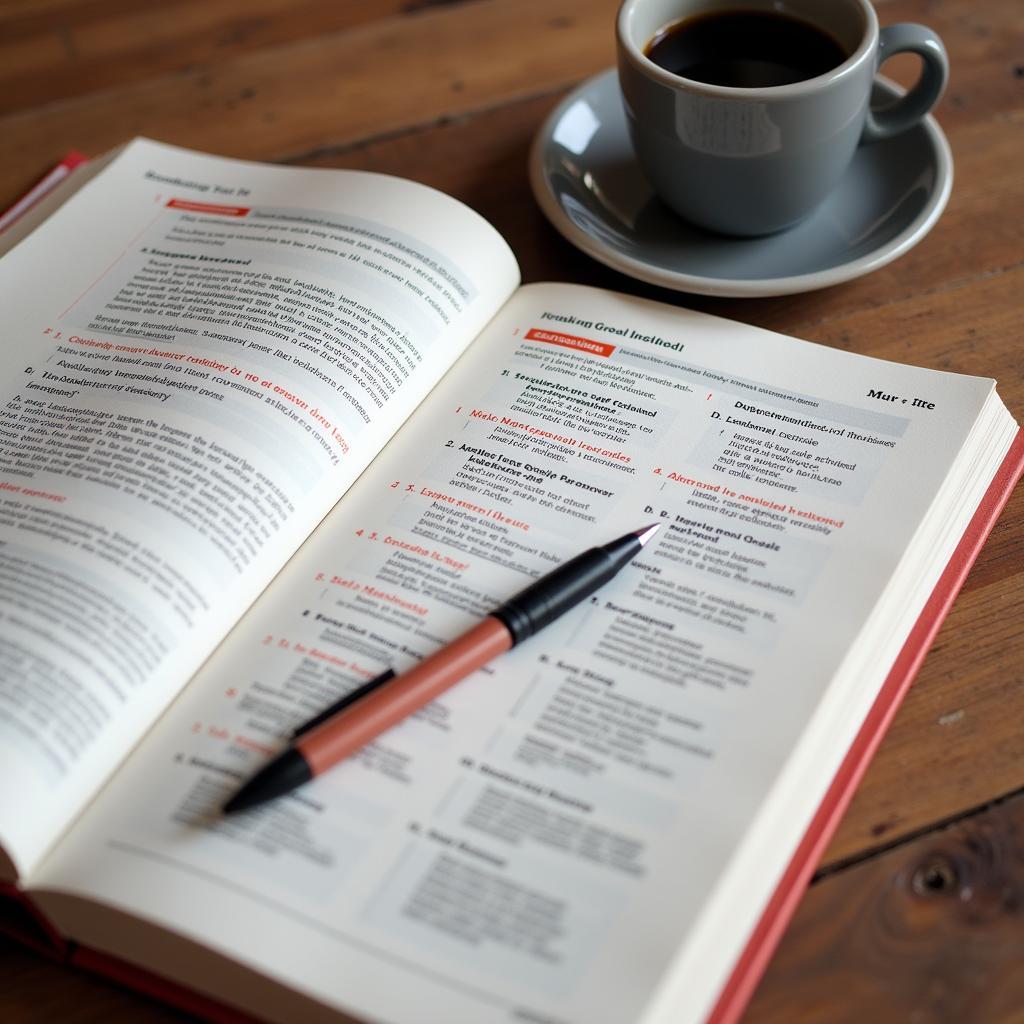As an IELTS candidate, demonstrating a wide range of vocabulary is crucial for achieving a high score, especially in the Speaking test. One common topic that often arises is “leisure activities.” Being prepared to discuss how you spend your free time confidently and fluently requires a strong vocabulary foundation. This article will equip you with the necessary vocabulary to impress the examiner and boost your IELTS score.
 IELTS Speaking Test Preparation
IELTS Speaking Test Preparation
Why is Leisure Activities Vocabulary Important for IELTS?
Discussing leisure activities is a common theme in the IELTS Speaking test, particularly in Part 1 where you’ll answer questions about your daily life and interests. You might be asked about your hobbies, how you prefer to spend your free time, or what you enjoy doing with friends and family. In Part 2, you might be asked to describe a specific leisure activity you enjoy, a memorable experience, or a place where you like to relax. Having a diverse vocabulary related to leisure activities will enable you to:
- Express yourself clearly and effectively: Accurately describe your hobbies and interests using specific and engaging language.
- Demonstrate fluency and coherence: Speak naturally and smoothly without pausing frequently to search for words.
- Showcase your grammatical range: Use a variety of grammatical structures when discussing your leisure activities.
- Score higher in the Lexical Resource criterion: This criterion assesses your vocabulary range and accuracy.
Essential Leisure Activities Vocabulary
To help you prepare, let’s explore some essential vocabulary for describing leisure activities in the IELTS Speaking test:
General Hobbies
- Pursuits: Activities that you spend time doing, usually regularly.
- Pastimes: Activities that you enjoy doing in your free time.
- Interests: Things that you find enjoyable or engaging.
- Engage in: To participate in an activity.
- Take up: To start a new hobby or activity.
- Give up: To stop doing a hobby or activity.
 People Engaging in Different Leisure Activities
People Engaging in Different Leisure Activities
Indoor Activities
- Reading: I’m an avid reader and particularly enjoy historical fiction.
- Playing board games: I find playing board games with friends to be both stimulating and entertaining.
- Crafting: Knitting and crocheting are relaxing pastimes that allow me to express my creativity.
- Cooking: Experimenting with new recipes is a favorite pastime of mine.
- Playing video games: I enjoy the challenge and excitement of playing online video games.
- Watching movies/TV shows: Relaxing with a good movie or TV show is a great way to unwind after a long day.
Outdoor Activities
- Hiking/Trekking: Exploring nature and challenging myself physically through hiking is incredibly rewarding.
- Camping: Spending a night under the stars while camping allows me to escape the hustle and bustle of city life.
- Cycling: Cycling is an enjoyable way to stay fit and explore my surroundings.
- Gardening: I find tending to my garden to be both therapeutic and rewarding.
- Photography: Capturing the beauty of the world around me through photography is a passion of mine.
- Playing sports: I’m an enthusiastic basketball player and enjoy the camaraderie of team sports.
Social Activities
- Socializing: Spending time with friends and family is a priority for me.
- Dining out: I love exploring new restaurants and cuisines with friends.
- Attending concerts/festivals: The energy and excitement of live music events are always exhilarating.
- Traveling: Experiencing new cultures and broadening my horizons through travel is incredibly enriching.
- Volunteering: Giving back to my community through volunteering is something I find deeply fulfilling.
Tips for Using Leisure Activities Vocabulary Effectively
Now that you’ve learned some essential vocabulary, here are some tips for using it effectively in your IELTS Speaking test:
- Don’t just memorize lists: Focus on understanding the meaning and usage of each word or phrase.
- Practice using the vocabulary in context: Create sentences and dialogues related to your own leisure activities.
- Vary your language: Use synonyms and alternative expressions to avoid repetition.
- Be specific: Instead of saying “I enjoy outdoor activities,” say “I’m an avid hiker and love exploring nature trails.”
- Connect your answers to your personal experiences: Share anecdotes and specific examples to make your responses more engaging.
 Woman Communicating Effectively During IELTS Speaking Exam
Woman Communicating Effectively During IELTS Speaking Exam
Conclusion
Mastering leisure activities vocabulary is essential for achieving success in the IELTS Speaking test. By expanding your vocabulary, you’ll be well-equipped to discuss your hobbies and interests confidently, fluently, and accurately. Remember to practice using these new words and phrases regularly to internalize them and improve your overall communication skills. Good luck with your IELTS preparation!
FAQs
1. What if I don’t have many hobbies?
Don’t worry! You can still discuss activities you enjoy doing in your free time, even if they aren’t traditional hobbies. For example, you might enjoy watching documentaries, spending time with your pet, or browsing the internet.
2. Is it okay to use informal language when discussing leisure activities?
While it’s acceptable to use some informal language in the IELTS Speaking test, it’s important to strike a balance. Use informal language sparingly and appropriately, and ensure you demonstrate your knowledge of formal vocabulary as well.
3. How can I expand my leisure activities vocabulary beyond this list?
Read articles, books, and blogs related to your interests. Pay attention to the language used and note down any new words or phrases. You can also use online dictionaries and vocabulary builders to expand your knowledge.
For more tips and resources to help you prepare for the IELTS Speaking test, check out our articles on IELTS Speaking Forecast, Complete IELTS Bands 4-5 Unit 1, and 100 Topic Speaking IELTS.
Need further assistance with your IELTS preparation? Contact us at Phone Number: 0372960696, Email: tuyet.sixt@gmail.com, or visit our address: 260 Cau Giay, Hanoi. Our dedicated customer support team is available 24/7 to assist you.




